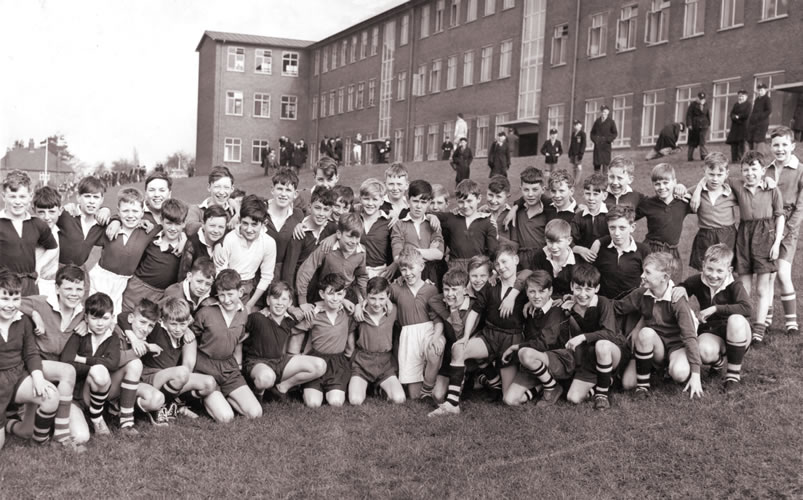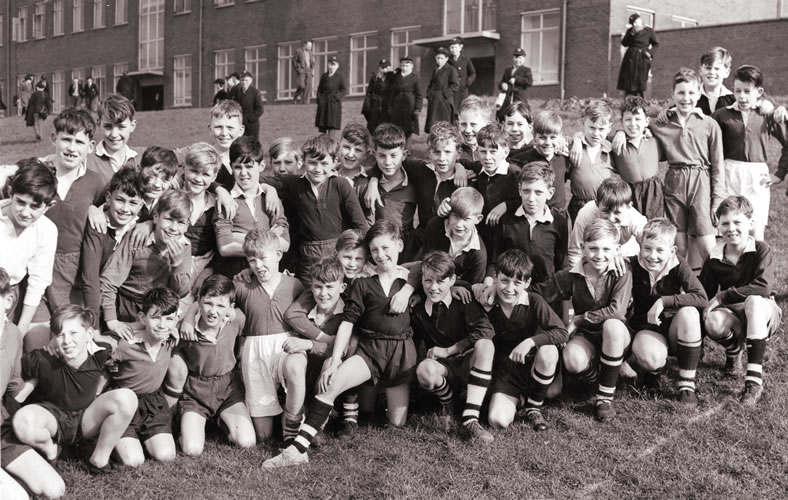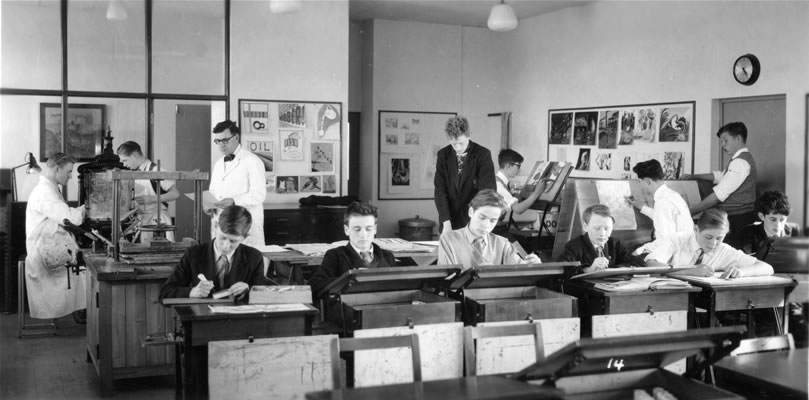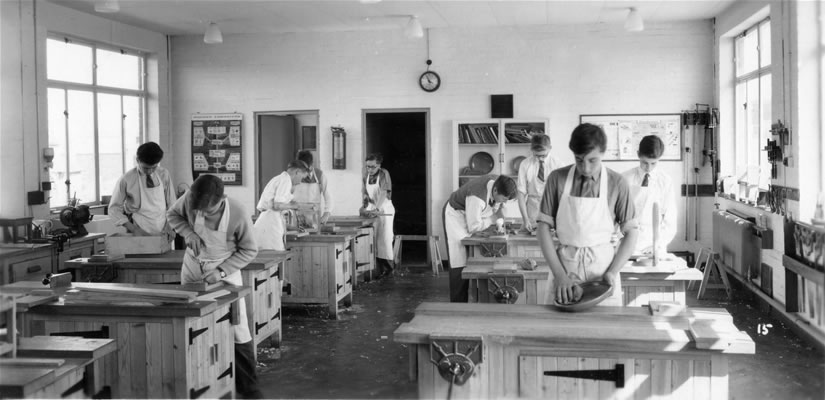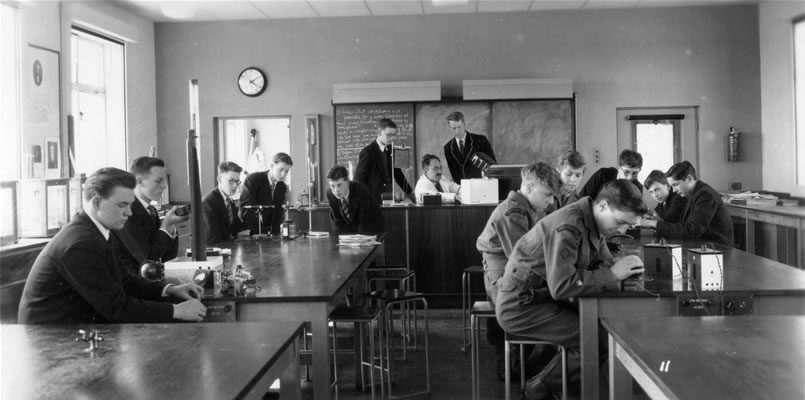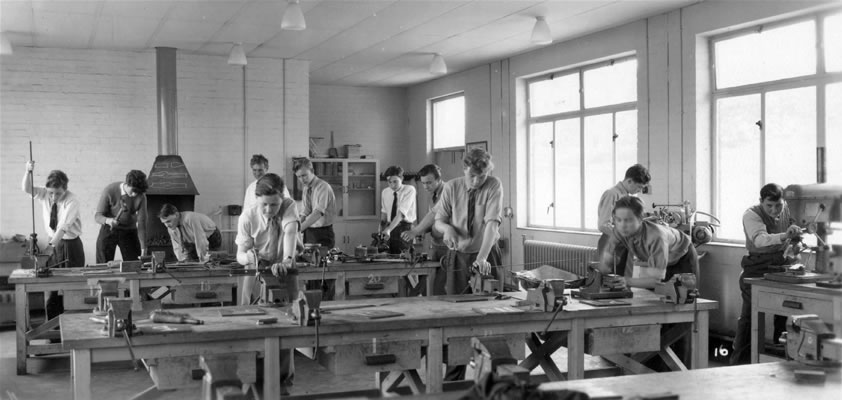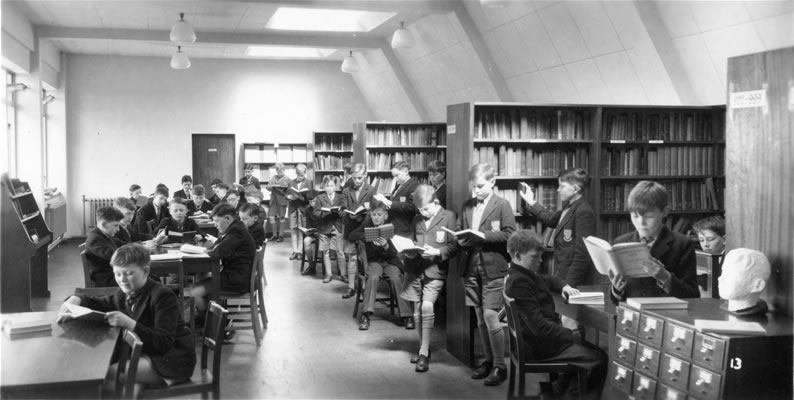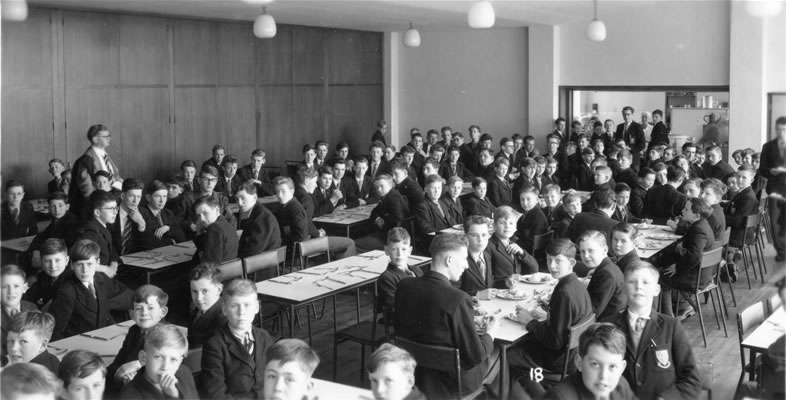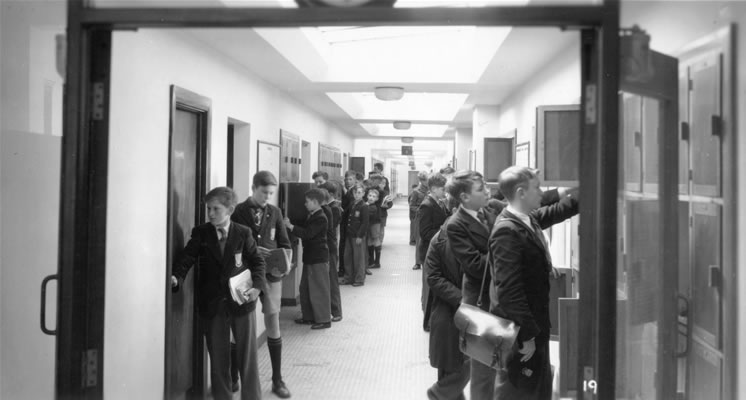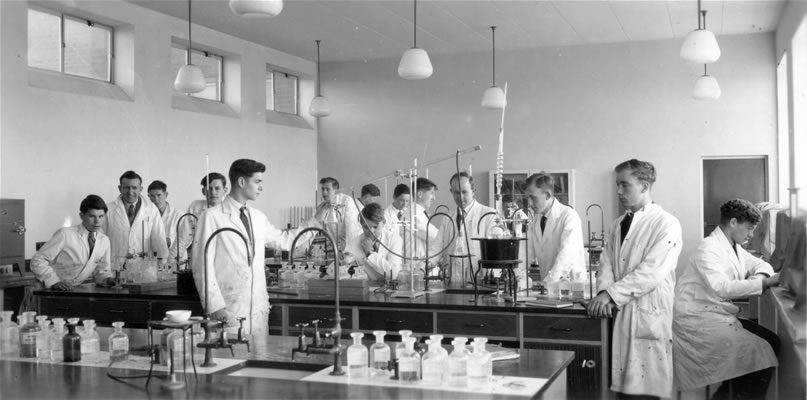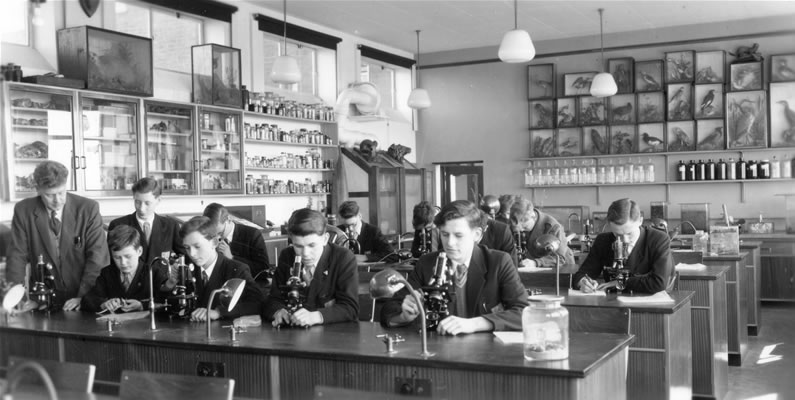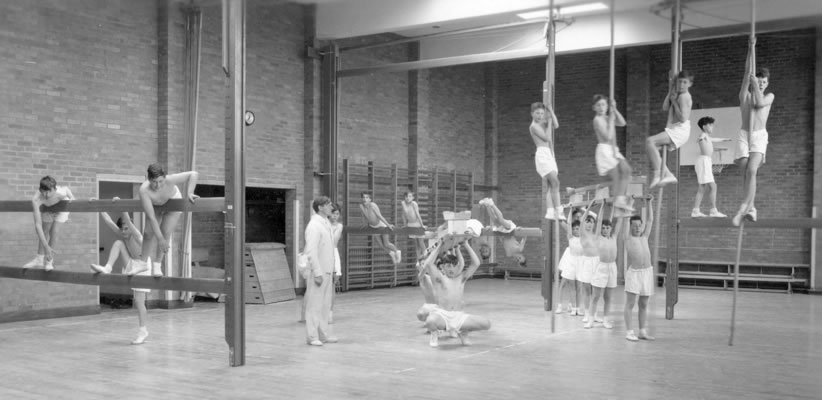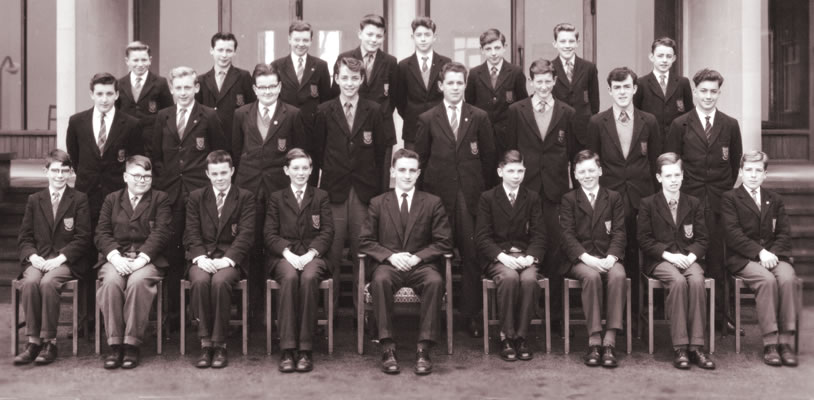Ellick Ward
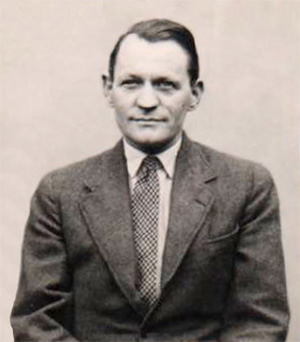 Ellick Thomas Ward was born in 1908 at Bingley, Yorkshire, the eldest of seven children and the only one of the siblings to enjoy a university education. He attended Bingley Grammar school, doing particularly well in French, History and Geography, although Physics, especially the construction of wireless sets, had been a main interest for him. In the Upper Sixth he was Senior Prefect and Rugby Captain and was quoted as “one of the most determined Rugby Forwards that the school has had”.
Ellick Thomas Ward was born in 1908 at Bingley, Yorkshire, the eldest of seven children and the only one of the siblings to enjoy a university education. He attended Bingley Grammar school, doing particularly well in French, History and Geography, although Physics, especially the construction of wireless sets, had been a main interest for him. In the Upper Sixth he was Senior Prefect and Rugby Captain and was quoted as “one of the most determined Rugby Forwards that the school has had”.
In 1928 Ellick was awarded the Roberts Memorial Leaving Scholarship, tenable at Leeds University. After graduating with a B.A. at Leeds in 1931 he continued studying for a Diploma in Education which he obtained in the following year.
His spoken French was good, and in 1930 he had visited France to work alongside French students in the flooded regions near Montauban.
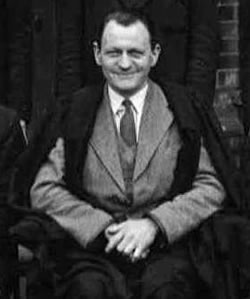 Ellick’s first teaching posts were at Bedford and then Doncaster, where he taught French, Geography, Mathematics, English and P.T. Always involved in extra activities, he was assistant scout master of one of the two scout troops at Doncaster, and Group scout master for Doncaster parish church. An unassuming, yet strong character, he is reported to have been much trusted and admired by the boys. At this stage he took the teacher’s certificate of the amateur Swimming Association and the Certificate for instructors in Air Raid Precautions.
Ellick’s first teaching posts were at Bedford and then Doncaster, where he taught French, Geography, Mathematics, English and P.T. Always involved in extra activities, he was assistant scout master of one of the two scout troops at Doncaster, and Group scout master for Doncaster parish church. An unassuming, yet strong character, he is reported to have been much trusted and admired by the boys. At this stage he took the teacher’s certificate of the amateur Swimming Association and the Certificate for instructors in Air Raid Precautions.
During the final years of the war, Ellick was headmaster of the village school at Natland, Westmorland, moving on from there to Burton Grammar School in 1944 to teach French.
At Burton he was able not only to pass on his love of the French language and French literature, but also to continue involvement with the School Scout Troop including taking boys to camp. He was also joint organiser during the war years of Harvest Camps. His swimming qualifications enabled him to give valuable assistance in the swimming instruction – in 1948 fifty boys each year were being taught to swim. His other enthusiasms were also communicated to others – he organised a successful stamp club, and later a radio society – the school had its own radio amateur call-sign. As careers master he took a special interest in building local links to employers in order to help the careers of boys who did not intend to apply for admission to universities.
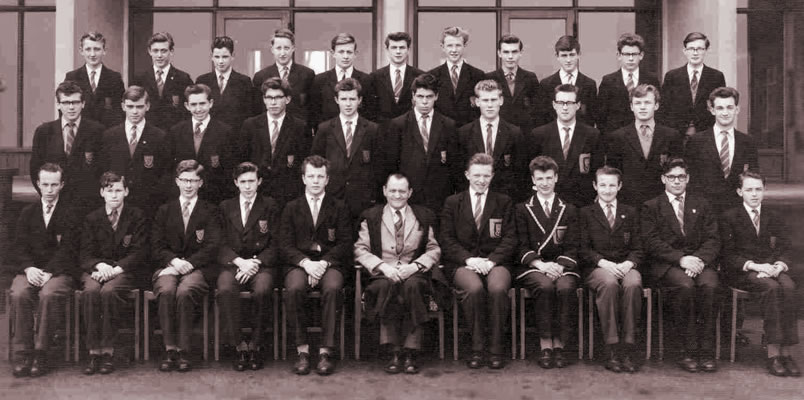 He was associated from its formation with the local branch of the Alliance francaise, and was concerned with French exchanges. For several years he, Norman Jones and others escorted parties of boys to Belgium where they stayed at the Hotel Venise du Nord in Bruges and enthusiastically explored the area.
He was associated from its formation with the local branch of the Alliance francaise, and was concerned with French exchanges. For several years he, Norman Jones and others escorted parties of boys to Belgium where they stayed at the Hotel Venise du Nord in Bruges and enthusiastically explored the area.
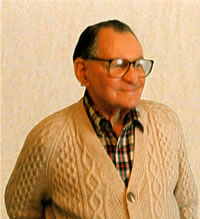 Ellick retired in 1973, glad that he was not involved in the change over to a comprehensive school (even the move from the town centre to Winshill he had scorned as a move to the ‘biscuit factory’).
Ellick retired in 1973, glad that he was not involved in the change over to a comprehensive school (even the move from the town centre to Winshill he had scorned as a move to the ‘biscuit factory’).
In retirement he enjoyed extensive travel, especially to Greece and to Egypt, lands which as a boy he had yearned to visit. As a radio amateur he continued to converse with contacts all over the world. A year after the death of his wife, Kitty, he married Peggy Bostock, a former teacher from Byrkley Street School and continued to live life with enthusiasm until his sudden death in 1998. Ellick is survived by his daughter, Christine, a former pupil of Burton Girls’ High School, and by his two grandchildren, Marion and Edmund.
…. to be continued …



